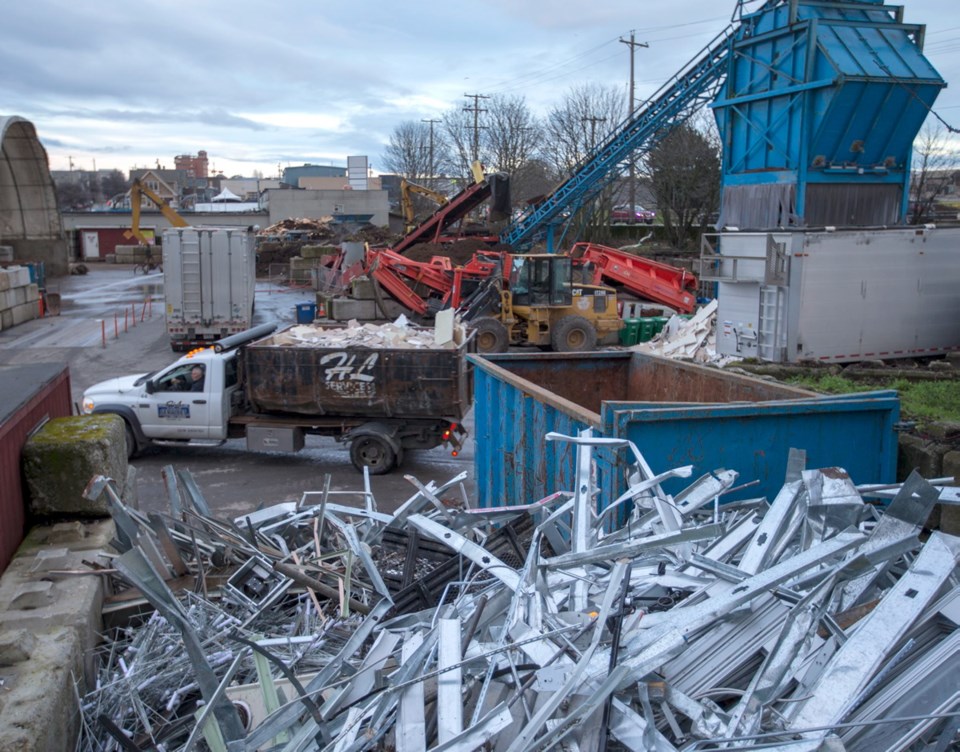The Capital Regional District will likely escape the negative effects of China’s recent decision to ban most foreign recycling materials, says the managing director of Recycle B.C.
The ban, which took effect Dec. 31, has left some cities across Canada with stockpiles of paper and plastic that no one will take. But Allen Langdon said a number of factors will protect the CRD and other B.C. municipalities from a similar fate.
For one, Recycle B.C. operates as a provincewide system that collected more than 185,000 tonnes of material in 2016. “We have economies of scale that are greater than just individual municipalities,” he said.
In addition, the non-profit agency responsible for residential packaging and printed paper recycling throughout British Columbia has set collection standards and strived to reduce contamination of the materials so that its recycled paper and cardboard products continue to be valued by other countries.
“As of now, we’ve still been able to send material to China, in part, because we probably have the cleanest material in North America,” Langdon said.
Diversification has helped as well. Recycle B.C. has been sending its plastics to a local processor for more than three years rather than shipping them overseas.
“That’s really insulated us from any of the changes in China,” he said.
Although the Chinese ban didn’t take full effect until recently, many companies there stopped accepting foreign recycling materials months ago, leaving some Canadian cities with mounds of flattened cardboard and crushed plastic without anywhere to send it.
Matthew Keliher, manager of solid waste for Halifax, said three-quarters of his city’s recyclables used to go to China. He said the city has found new markets for hard plastics and papers but film plastics — grocery bags and food storage bags and wraps — have proved harder to sell. Three hundred tonnes of film plastic amassed in a Halifax warehouse since August are being sent to the dump.
Calgary, which used to send all of its paper recyclables and half of its plastics to China, has amassed 5,000 tonnes of material over the last few months that it can’t find anyone else to take. It hasn’t yet decided what to do with it.
While Canada has domestic recycling companies, Christina Seidel, executive director of the Recycling Council of Alberta, said those are almost exclusively for high-grade plastics like milk jugs and juice bottles.
“That’s a really high-quality material,” she said.
“Everyone wants those. There aren’t huge fans of the low-grade plastics.”
Seidel said Canada needs to move nationwide to the extended producer responsibility system in place across British Columbia, which puts the onus on the producers — such as manufacturers, retailers, and restaurants — to pay for and ensure the recycling of its products.
In B.C., that has led to a larger domestic market for recyclables and less pressure on municipalities to pay for the programs.
— with a file from The Canadian Press



